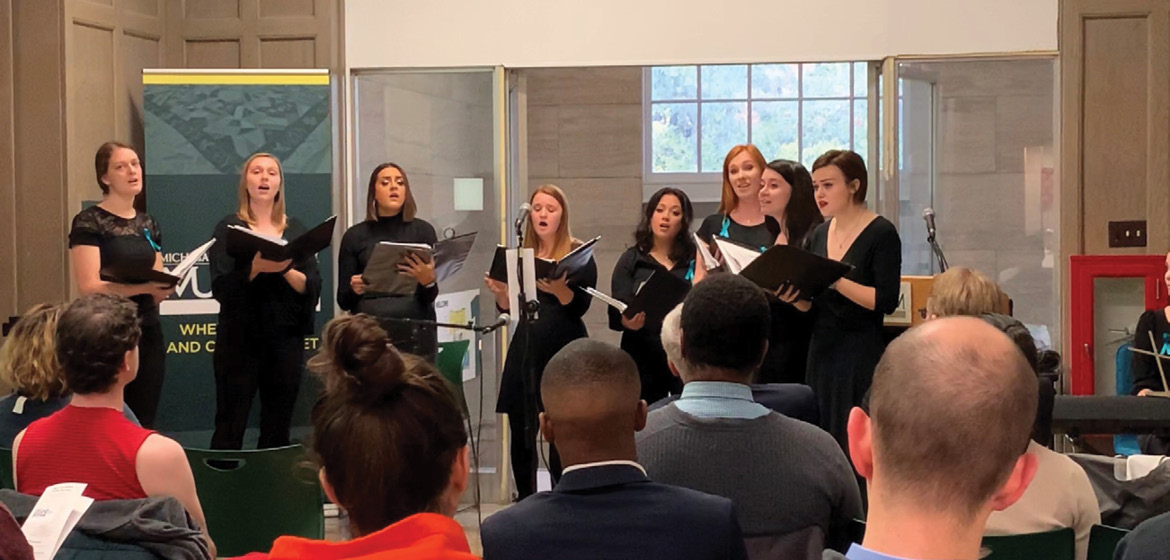Music Music and Healing

Music students spend a majority of their time practicing. They spend their time mastering their craft so they can hit every note when the time comes to perform. Marcie Ray, associate professor of Musicology, took notice of the fact that students spent most of their time rehearsing and rarely put much thought into the broader contexts of their performances.
Ray teaches some courses with heavy content; for example, exploring the relationship between music and violence or music and mental health. She began to take note of how these topics almost wore out her students and discovered it was because there was no outlet for them to use the information they were learning. This realization became the guide for her engagement work: Community engagement forms the balance between learning theory and applying it in meaningful ways.
One of those ways involves a partnership with Cristo Rey Community Center in Lansing. Ray’s students help make customized playlists for the therapists working at the center to listen to between meetings. This helped the student musicians see the effects music can have on mood and mental health.
“For the first time, these students who have spent their lives making music, began to think differently about what they do,” Ray said.
Perhaps the most striking example of the power of music in action was Music and Healing at the MSU museum during It’s on Us week, part of the Finding Our Voice exhibit. Ray prepared students to perform at the event, selecting pieces of classical music that portray women in a positive light—not an easy task. At the event’s conclusion, Ray was able to interview all her students about the experience.
“I was so moved by how much they grew in terms of thinking about their music as a vehicle for healing,” Ray said.
The performances of those students are a lasting reminder to themselves and others that music is about more than just perfect execution. Taking the needs and desires of the audience into consideration is crucial.
Ray is just getting started with community engagement work with the college of music. “I’m hoping that the community can begin to see us [the College of Music] as a resource for more than just concert performances,” she said.


